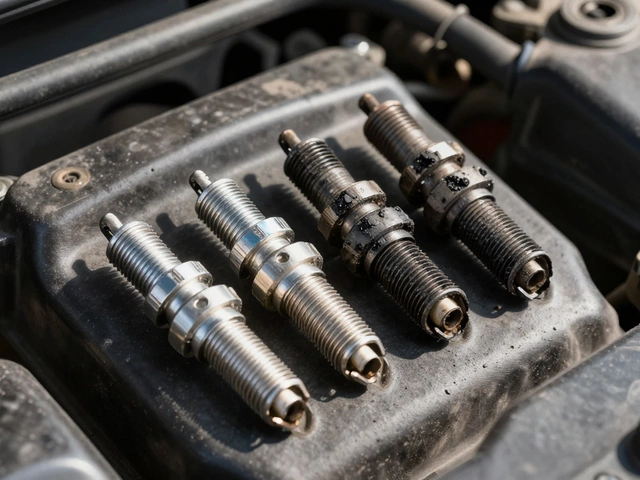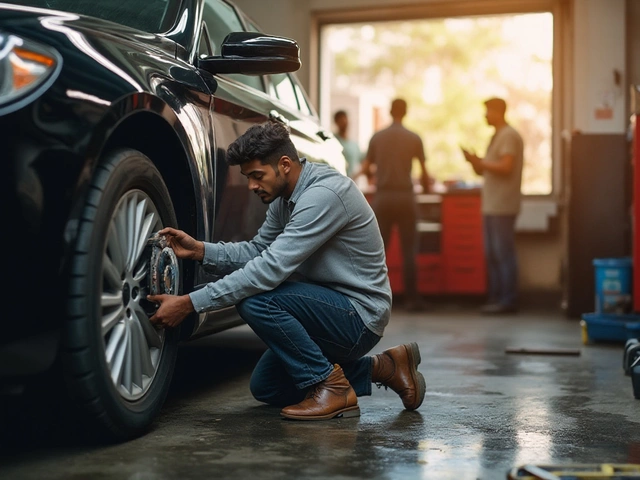Ever wondered what keeps your car humming along smoothly? It’s got a lot to do with fuel pumps. They’re pretty much the unsung heroes of your vehicle, making sure the engine gets the right amount of fuel. But like all heroes, they occasionally need some attention, which sometimes means replacement.
So, what’s the damage to your wallet? Well, replacing a fuel pump isn’t exactly cheap. Depending on your car's make and model, you might be out anywhere from $400 to $800. And if you've got a luxury ride, that number could climb even higher.
Don’t panic just yet! This might sound steep, but understanding the ins and outs can help you prepare for this expense. Let’s chat about what affects the cost, possible ways to save some bucks, and whether it's something you can tackle on your own.
- Understanding Fuel Pumps
- Typical Replacement Costs
- Factors Affecting Price
- DIY vs Professional Replacement
- Tips for Saving Money
Understanding Fuel Pumps
Alright, let's break down the basics of fuel pumps. When your car's engine needs fuel, it's the fuel pump's job to deliver it from the tank to the engine at the right pressure. Think of the fuel pump as the taxi driver, shuttling precious fuel to where it has to be.
There are generally two types of fuel pumps you’ll come across. First, the mechanical kind, mostly found in older cars. These are powered by the engine itself. Then, there’s the electric fuel pump, more common in modern vehicles and mounted inside the fuel tank. It’s more efficient and usually quieter.
Here's something interesting: Electric fuel pumps usually run in a range of 30 to 80 PSI (pounds per square inch). This is crucial because high pressure is needed to supply the fuel injectors effectively, ensuring your car performs as it should.
Why do they fail? Contaminants in gasoline, consistently driving on low fuel, or wear and tear can all lead to a pump giving up. Your first clue might be the car not starting or struggling to accelerate.
Here’s a quick table to showcase typical lifespans for fuel pumps:
| Type | Lifespan |
|---|---|
| Mechanical | 50,000 - 100,000 miles |
| Electric | 100,000 - 200,000 miles |
Keeping your tank at least a quarter full can help extend the life of a fuel pump. If your car often runs near empty, the pump can overheat as it's cooled by the fuel itself. Plus, debris at the tank's bottom might get into the system. So, keep those levels topped up!
Typical Replacement Costs
When it comes to replacing a fuel pump, costs can vary widely depending on your ride. A standard rule of thumb is that smaller cars with simpler fuel systems will generally cost less. Here's how it usually breaks down.
For most vehicles, expect to spend between $400 and $800. However, this isn't set in stone. If you drive a luxurious model like a BMW or Mercedes, you might be looking at the higher end of that range or even beyond. Remember, labor costs contribute a big chunk to the bill.
Labor rates are typically between $50 and $150 per hour, depending on where you live and the shop you choose. Meanwhile, parts themselves can range from $100 to several hundred dollars.
To give you a clearer picture, here's a look at some approximate costs for different vehicle types:
| Vehicle Type | Average Cost |
|---|---|
| Compact Cars | $350-$550 |
| SUVs & Trucks | $500-$800 |
| Luxury Vehicles | $700-$1000+ |
These numbers should give you a rough idea of what you're facing. It pays to shop around and compare quotes from different repair shops. It’s also worth considering warranty policies; if you're lucky, this could help you dodge a hefty bill altogether.

Factors Affecting Price
When trying to pin down the cost of a fuel pump replacement, several factors come into play. It's not just about the part itself but a mix of things that can influence the final bill.
First up, your vehicle's make and model. Cars from luxury brands tend to have pricier parts. If you drive a common vehicle, you might find cheaper options since there are more parts available in the market.
Labor costs can also be a huge factor. This depends on where you live. Dealerships and high-end garages usually have higher hourly rates compared to independent mechanics. So, if you're in a big city, brace yourself for a higher tab.
Then there's the type of fuel pump. An electric fuel pump will likely be cheaper and easier to replace than a mechanical one. Plus, the location of the pump in your car can affect how much labor it takes to swap it out. In some vehicles, the pump is buried deep and hard to reach, which means more time on the clock.
Let’s not forget about related components. At times, other parts of the fuel system might need a look. Fuel filters, lines, or even the tank might add extra cost if they're due for a change.
Here's a rough idea:
| Vehicle Type | Average Replacement Cost |
|---|---|
| Sedan | $400 - $600 |
| SUV | $500 - $700 |
| Luxury Car | $700 - $1000+ |
Keeping all these factors in mind can help manage expectations when you're staring down a potential car repair cost for your fuel pump. It also sets you up for making informed decisions when choosing how and where to replace it.
DIY vs Professional Replacement
Thinking about swapping out that fuel pump yourself? It’s tempting, especially if you're handy with a wrench and trying to save a few bucks. However, it’s not the simplest task and does come with its bag of challenges.
First off, the question you need to ask yourself: Do you have the right tools and confidence to do it? Replacing a fuel pump requires precision and sometimes specialized equipment. If you miss a step, you could end up with a more expensive problem than you started with.
Professionals, on the other hand, come with experience and the right gear. According to an article in “Car Mechanic Magazine,”
“A trained mechanic often completes a fuel pump replacement in a fraction of the time it would take a DIYer due to their expert know-how and resources.”So, time is another factor to consider.
However, if you're dead set on going the DIY route, here's a condensed outline on what you'll be getting into:
- Ensure safety first—disconnect the car battery.
- Access the fuel pump—often located in the fuel tank.
- Carefully remove the old pump and note how everything is connected.
- Install the new pump with precision and reattach everything as it was.
- Reconnect the battery and test the installation with a short drive.
For most folks, going to a professional is worth the assurance and convenience, especially if you don't have much experience. An important car repair cost to consider, sure, but often saves a load of hassle and potential future issues.
Ultimately, whether you do it yourself or bring in the pros, keeping your vehicle's fuel system in top condition is key to maintaining overall performance.

Tips for Saving Money
Let’s face it, nobody wants to blow their budget on a fuel pump replacement. But, with a little know-how, you can actually keep some extra cash in your pocket. Let’s break down some solid tips.
Shop Around for Parts: Different stores and websites might offer wildly different prices for the same part. It’s worth spending a bit of time to compare prices online and at local auto parts stores. Look for discounts or coupons—some retailers offer special promotions that could help you pinch a few pennies.
Consider Aftermarket Options: While OEM (Original Equipment Manufacturer) parts are the standard, aftermarket parts have come a long way and can often be cheaper. Just ensure you’re getting them from a reputable supplier, as quality can vary widely.
Opt for a Trustworthy Mechanic: Did you know labor can make up a big chunk of car repair costs? Asking around for recommendations or checking online reviews can land you with a skilled mechanic who won’t charge through the nose.
DIY If You're Handy: Feeling adventurous? If you're comfortable with a wrench and some research, attempting to replace the pump yourself might save you the labor fees. Be sure to have a reliable guide or tutorial to follow.
Look for Warranty Solutions: Check whether your fuel pump is still under warranty. Sometimes, manufacturers or sellers offer warranty coverage that might completely or partially cover the replacement cost. It never hurts to ask!
| Part Type | Potential Savings |
|---|---|
| OEM Part | $400 - $800 |
| Aftermarket Part | $250 - $600 |
By following these steps, you’ll be savvy in managing your budget while ensuring your car’s fuel system stays in tip-top shape. Remember, a little upfront effort can mean substantial savings down the line.







Write a comment